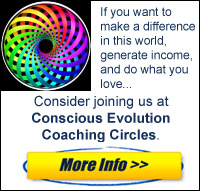By Guest Bloggers, Lee and Steven Hager
http://www.thebeginningoffearlessness.com/blog
In our world, nothing stays the same for very long. We’re taught to rely on the advice of experts, but their opinions seem to change with the breeze. If you knew that something had remained unchanged for over two thousand years and had continued to help people find the peace and joy they were seeking for that entire time, would you be curious?
The perennial philosophy is a golden thread of spiritual thought that can be found in virtually all cultures and time periods. It’s a group of harmonious spiritual concepts that are free of dogma and ritual. It’s been a part of so-called “primitive” and pagan belief systems as well as the mystical branches of nearly every organized religion.
The concept of an “eternal philosophy” that incorporates universal spiritual truths and exists free of human influence has intrigued philosophers for hundreds of years. In the West, it’s been thought of as a “philosophy of harmony” or a “universal religion” that remains untainted by sectarian views. In the East, it’s been thought of as Sanatana Dharma (eternal law) or Manava Dharma (religion of man). In 1945 Aldous Huxley wrote the aptly titled Perennial Philosophy, which outlines the universal truths that have continued to crop up in spiritual thought worldwide.
The perennial philosophy is not a formula for enlightenment, but its simple concepts have encouraged countless seekers to reach spiritual mastery. Although the perennial philosophy has far more to offer, here are four of its most basic and helpful concepts:
- There is a Divine Ground that permeates the universe. The world we think we see is a temporary projection that originates from that Divine Ground
- A change in consciousness is required to become aware of, and experience, the Divine Ground.
- Everyone has the ability to experience the Divine.
- Experiencing the Divine is life’s highest purpose.
Simply put: Life-giving intelligence permeates everything in existence. This intelligence wants to be known and can be known.
Most of us have been taught that spiritual mastery is a nearly impossible goal, but the perennial philosophy does not agree. No secrets, methods, formulas or spiritual practices are involved, and none are necessary to experience the Divine. Knowing the Divine does require a shift in our awareness, but everyone is capable of making that shift. How do we shift our awareness? Huxley pointed out that successful spiritual seekers have all shared a mindset that includes these features:
- “Pure in heart.” This does not mean we need to “clean up our act.” It refers to our motives. A pure heart is looking for a connection with the Divine for the sheer joy of that connection. A pure heart isn’t asking for material blessings.
- “Poor in spirit.” This has nothing to do with poverty. It means that we understand that the world can make us rich, but it can never enrich us. We’re poor in spirit when we understand that our life will be empty until we have a direct connection with the Divine.
- “Empty hands.” Seekers with empty hands are willing to let go of all mental conditioning, preconceived notions and the desire for a particular outcome. They are willing to be instructed by the Divine instead of trying to fit the Divine into their own belief system.
These qualities are free and available to everyone, no matter what our circumstances might be. Most of us have been taught that we can learn about God by taking in information, but there is no need for us to be satisfied with that.
Spiritual masters have never been interested in learning “about” the Divine; instead, they expect to “know” the Divine through personal experience. You don’t have to become a spiritual master before you can experience the Divine, in fact, it works the opposite way. As you open yourself to the experience, you grow spiritually. The perennial philosophy tells us this is not only possible, it’s our highest purpose. Best of all, experiencing the Divine is the beginning of a life of fearlessness that you can enjoy.
Know by your own direct experience that the Divine within you is the Divine in all—Shankara ______________________________________________________________________________
Lee and Steven Hager are the authors of The Beginning of Fearlessness: Quantum Prodigal Son, a spiritual quest and scientific adventure based on Jesus’ parable of the prodigal son, quantum physics and the gnostic gospels. Their blog http://www.thebeginningoffearlessness.com/blog features articles on oneness, spiritual awakening, quantum physics, the gnostic gospels and the direct, personal experience of the Divine.



Comment